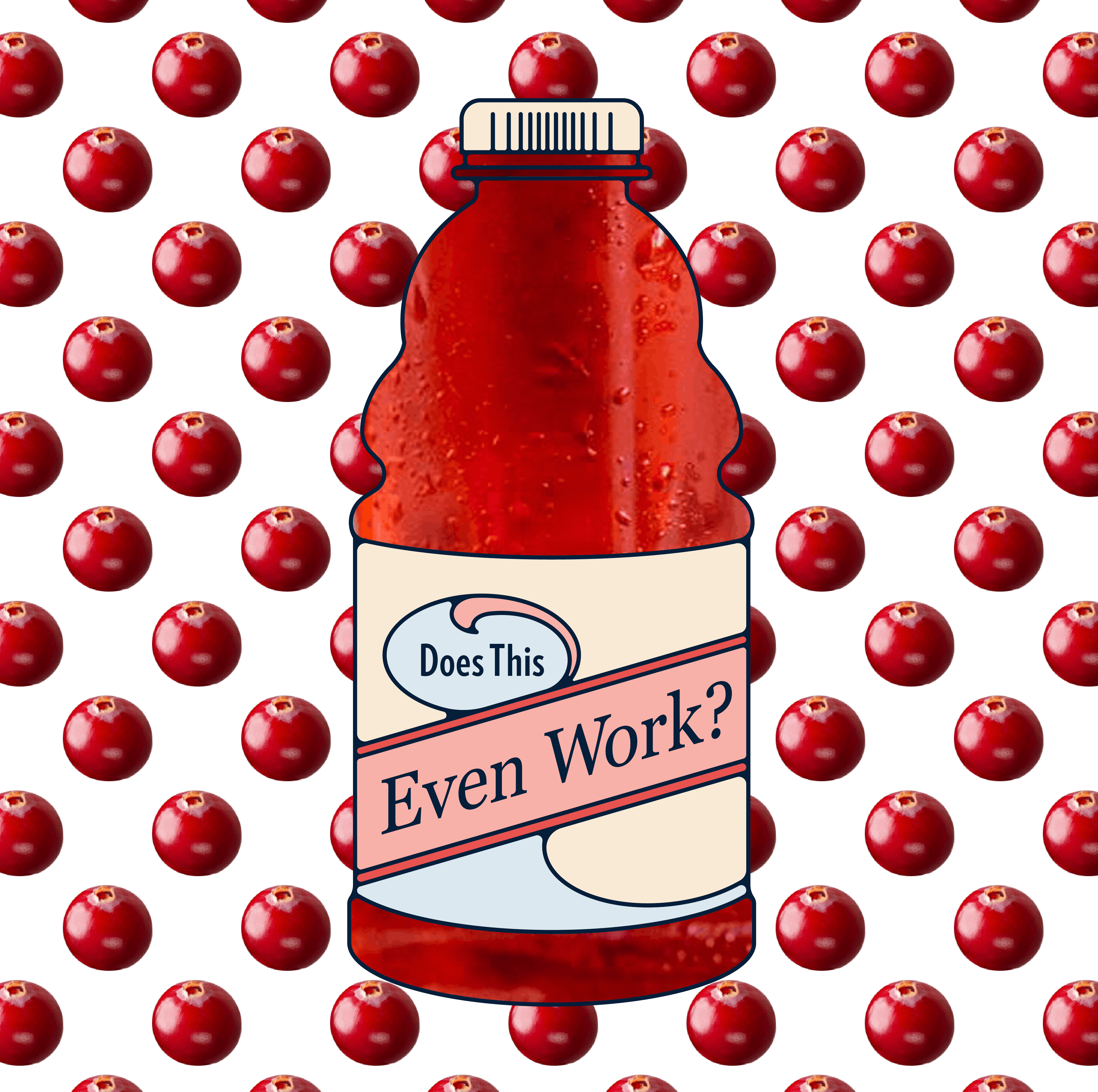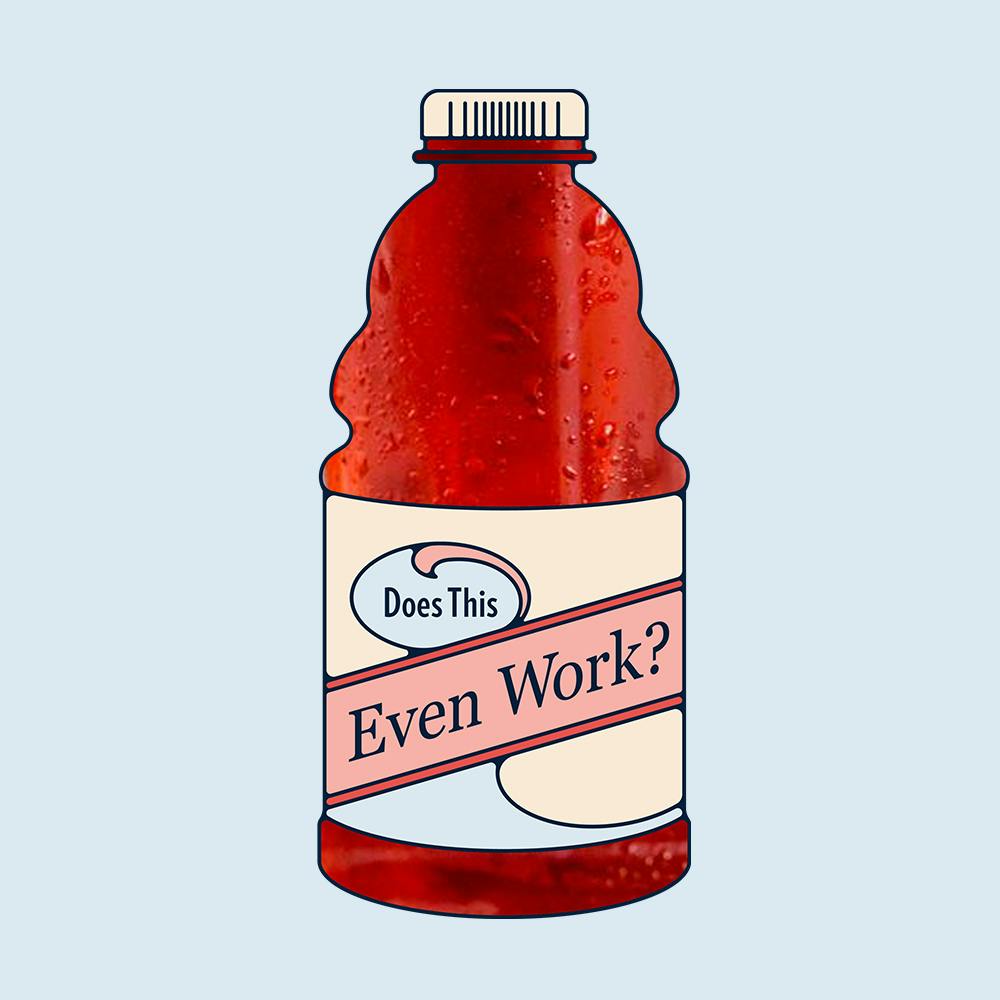Illustrated by Erin Rommel
A urinary tract infection (UTI) is an infection within the urinary tract, which is made up of kidneys, ureters, bladder, and urethra.
A UTI can happen anywhere in your urinary tract. Most UTIs affect only the urethra (urethritis) and bladder (cystitis, which is what is most commonly referred to as “UTI”) in the lower urinary tract.
1 in 3 women will have a UTI by age 24, and more than 50% will get a UTI at least once in their lifetime—and any of them will be able to tell you how unpleasant UTIs are. They feel like you’re peeing flames after someone sanded your urethra, and then punched you in the crotch for good measure.
What are the symptoms of a UTI?
UTIs are often asymptomatic, but when they do cause symptoms, they’re incredibly annoying. Common symptoms include a burning sensation when you pee (painful urination is known as dysuria), a strong and frequent need to pee, not being able to empty your bladder (one of the top 5 most infuriating feelings ever), pelvic pain, and generally feeling unwell.
Your pee may also look—and smell—weird, too. UTIs can cause urine to turn cloudy or pinkish-reddish (that’s blood), and foul-smelling.
UTIs aren’t generally a cause for concern, but ideally you want to treat a UTI before it spreads to the upper tract and infects the ureters and kidneys. Upper tract UTIs aren’t as common, but they’re more severe, and can potentially lead to sepsis, a life-threatening complication of infection. If you experience fever, nausea or kidney pain, please seek medical attention as these can be signs of a kidney infection.
Anyone can get UTIs, but cis women are annoyingly more prone to them, due to our anatomy. Women have shorter urethras than men, which allows “easy access” for bacteria to enter your urinary tract from the outside. This can happen by wiping your bum incorrectly, or through sexual intercourse, for example. Kidney stones, being immunosuppressed, or using spermicides can also increase your risk of UTIs.

Does cranberry juice help with a UTI?
You’ve likely heard, or been told, that cranberry juice will clear away a UTI. In fact, chances are even your GP has recommended you drink cranberry juice or take a cranberry supplement to treat a UTI. But is cranberry juice all it’s cracked up to be? Sadly, no.
Cranberry juice is basically synonymous with UTIs (or Cosmopolitans, if you also like vodka), and until recently everyone and their mom thought cranberry juice was *the* remedy for preventing and treating UTIs.
Experts used to think that the acidity in cranberries would kill bacteria that made its way into the urinary tract. When that theory was disproved, others argued that A-type proanthocyanidins—an active ingredient in cranberry juice and supplements—could prevent bacteria from sticking to the walls of your bladder.
In reality, the jury is still out on whether cranberry juice really does anything to prevent or treat UTIs. Although many studies have been conducted on the topic, a 2012 Cochrane systematic review concluded that “cranberry juice does not appear to have a significant benefit in preventing UTIs and may be unacceptable to consume in the long term.”
So pure cranberry juice won’t do any harm, but there’s no guarantee that it will do any good, either. Cranberry juice as a treatment for UTIs is the myth that just won’t go away, much like the burning sensation a UTI gives.
The only recognised treatment for UTIs is antibiotics, which is fine if you’re one of the lucky gals who will only get a UTI once in her life. But if UTIs are the bane of your existence, relying too often on antibiotics isn’t ideal.
Although antibiotics kill the bacteria that cause UTIs (called E. coli), they also get rid of all the good bacteria in your vaginal microbiome that help keep other infections—like thrush and BV—at bay. There is also a risk that long-term use of antibiotics may lead to antibiotic resistance, where bacteria become immune to antibiotic treatment.
How to treat a UTI
So, antibiotics aside, what can you actually do to help treat UTIs?
Drink lots of water
Peeing when you have a UTI may be the equivalent of walking on shards of glass, but it helps expel unwelcome bacteria. Drinking lots of water dilutes your urine and ensures you keep flushing out any bacteria in your urinary tract.
Take paracetamol
Paracetamol doesn’t treat UTIs, but could potentially help with the discomfort associated with the infection—such as pelvic pain. You should try to avoid ibuprofen because if you’re unlucky enough to get a kidney infection from your UTI, ibuprofen could damage your kidneys further.
Try to avoid caffeine and alcohol
It’s not a bad idea to give up caffeine and alcohol while you’re treating a UTI (especially if you’re taking antibiotics), but if you absolutely can’t give up your morning jolt it’s not the end of the world.
How to prevent a UTI
So when it comes to UTI treatment, it’s admittedly slim pickings. If you’re prone to recurrent UTIs (or would simply like to stay on the safe side), here are some easy ways to prevent them:

Research suggests that supplementing with good bacteria, especially Lactobacilli, can prevent UTIs. Daye's ProViotics can help you strengthen your vaginal flora and replenish it with good bacteria so it can fight off pathogens like E.coli, which cause UTIs.

Always pee after sex
You’ve probably heard this one before, and for good reason. The friction and movement of penetrative sex can make it easier for bacteria to enter your urinary tract. In cis women, the urethral opening is found between the clitoris and vaginal opening, smack dab in the middle of all the action. Peeing after sex flushes out any potential bacteria that has entered the urinary tract during intercourse. The cuddles can wait until after you’ve peed.
(FYI: if you’re dealing with a UTI already, sex might be uncomfortable AF, so don’t feel bad if you’re not on your A game).
Wipe from front to back
This is another anatomically-sound tip. When you wipe back to front, you risk spreading fecal bacteria from your anus to your urethra, potentially causing a UTI. Wiping from front to back doesn’t completely eliminate that risk, but it definitely reduces it.
Don’t half-pee
This one might sound silly, but a lot of people don’t fully void their bladder when they go to the bathroom. If you’re prone to recurrent UTIs, it’s important to pee frequently and completely.
Take a D-mannose supplement
D-mannose is a naturally occurring sugar found in many fruits. Research shows that D-mannose may help prevent recurrent UTIs in women who are not pregnant. A 2014 study published in the World Journal of Urology found D-mannose to be as effective in preventing UTIs as antibiotic treatment.
It might be a good option if you find yourself dealing with UTIs more often than you’d like, but research into D-mannose for UTIs is still fairly new, so more studies need to be carried out to confirm its effectiveness.
TL;DR
- A UTI is a very common infection of the lower urinary tract, usually of the urethra or bladder.
- Women are more prone to getting UTIs than men.
- Symptoms include burning or painful urination, a frequent and sudden need to pee, and not being able to empty your bladder.
- Despite what you might have heard, there is no reliable evidence that proves cranberry juice or cranberry supplements are an effective way to treat, or prevent, UTIs.
- A combination of antibiotics, paracetamol, and plenty of water will help treat a UTI.
- There is plenty you can do to prevent recurrent UTIs. Some methods include peeing after sex, wiping front to back when you go to the bathroom, and fully emptying your bladder.






